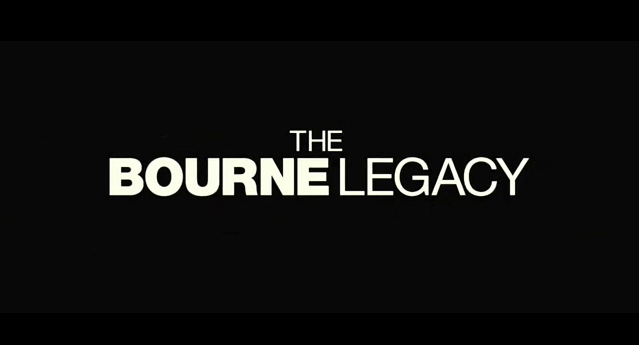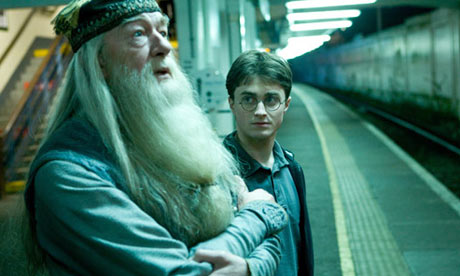Bond's back.
After the dud that was "The Bourne Legacy", we finally got the espionage film of the year that we all deserve in the form of "Skyfall", the 23rd entry in the Bond film franchise which also serves as an apt commemoration of 007's 50 years of cinematic existence.
Compared to the masterful "Casino Royale" and the mediocre "Quantum of Solace", "Skyfall" is far less complicated in its narrative but heavier in terms of what is at stake. Our beloved 'M' (played by the great Dame Judi Dench), Bond's stern superior who has always been one step behind our equally beloved master spy, is at her most involved in this film, not to mention the fact that she's also the one who's gravely in peril this time. On the other hand, there's also Gareth Mallory (Ralph Fiennes), a man whose firm principles often clash with his bureaucratic job.
If one would notice, "Skyfall" is a bit less in its action compared to Daniel Craig's first two Bond outings. With the film's biggest action set piece audaciously positioned even before the lush opening credits (with that beautiful song by Adele), director Sam Mendes has taken the ultimate gamble. If the film's best action sequence was immediately presented at the beginning, what, then, is left for "Skyfall"? Well, quite plentiful, really.
Aside from the film's simplistic yet infinitely more compelling plot, the film is also rich in great performances, specifically by Judi Dench and Javier Bardem, whose portrayal of the villain Raoul Silva is as vengefully realistic as it is larger-than-life. Though he is not, in any way, a random anarchist like the Joker, Silva still mirrors the 'Clown Prince of Crime' especially in how he is concerned with flamboyant theatrics and metaphorical speeches.
But then despite of Bardem's potentially scene-stealing role, I believe no one can easily overshadow Daniel Craig's power and screen presence as James Bond himself. If "Quantum of Solace" has served as a fairly muddled, speed bump-like transition film for him as 007, then I think "Skyfall" is the testament of how much he has really grown in the role. Right now, I can't help but think that he is indeed the most ideal Bond of all time, with apologies to Sean Connery and company of course.
By possessing a more-than-convincing physique apt for a chick magnet, the physical abilities perfect for a globe-trotting, train roof-jumping secret agent and also the subtle wit that finely contrasts his intimidating exterior, Craig has all the elements of the quintessential Bond. No offense to both Sean Connery and Roger Moore, but can you really imagine either of them instigating a convincing fisticuff with anyone whom Daniel Craig has encountered all throughout his three Bond films? I doubt it. Granted, Sean did have that masterfully intense and claustrophobic train compartment fight with Robert Shaw in "From Russia with Love", but aside from that, there's next to nothing. What "Skyfall" has revived in the Bond tradition, at least in my view, is pure action grit. Never has Bond been more hard-hitting and convincing in action since Timothy Dalton and his brief 007 tenure.
By relying less on the typical Bond ingredients (the girls, the gadgets and the usual dose of megalomaniacs) and more on how to put the words 'grit', 'emotion' and the name 'Bond' in the same sentence, "Skyfall" was able to elevate itself into something more than an action-packed spy feature the same way, eherm, here it goes, "The Dark Knight" trilogy has transcended the superhero genre (But then, I found out that "Skyfall" was indeed influenced by Nolan's powerful interpretation of the Batman legend).
In a way, "Skyfall" is a film that's both ambitious in scope yet steadily humble in execution. It has the needed sense of modern-day sophistication and geographic vastness yet it also has this kick of old school flair, especially when that classic James Bond theme finally seeps in at almost exactly the same time the Aston Martin DB5 makes its on-screen return. Oh, and there's also the reinvention of both Q (Ben Whishaw) and Moneypenny (Naomie Harris); a bold move on Sam Mendes and company's part that has helped the film attain a fresh, more contemporary look while also maintaining a running sense of nostalgia.
In the end, "Skyfall" may not be the most action-packed Bond film of all time, but it surely is the most emotionally demanding since, say, "On Her Majesty's Secret Service". Although "Casino Royale" certainly had its fair share of adequate dramatics that were seemingly amiss from previous Bond features (especially the Roger Moore vehicles), "Skyfall" still marks the franchise's highest emotional point. Why? Well, it's for me and all the other film fans that have enjoyed "Skyfall" to know and for you to find out. This is a roller coaster ride of a film, and that's not just pertaining to the action. Bond, amid the jumping, the fighting and lots of running, just proved in this film that he can also carry some serious dramatic weight. I think we're officially in for a new Bond Renaissance.
FINAL RATING










